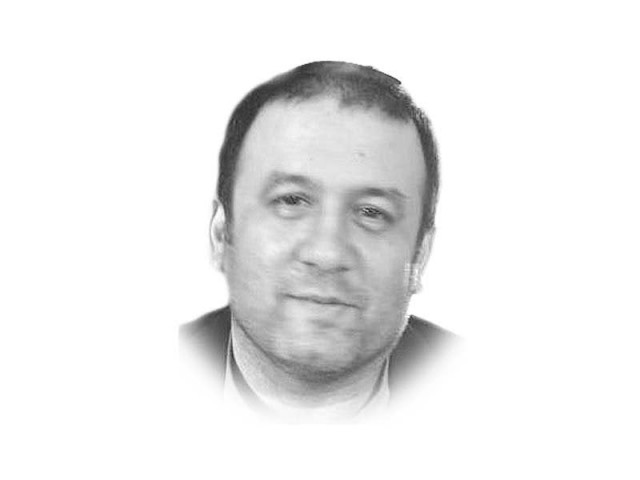The election fallacy
Over the past 35 years, we have had eight elections. All returned to power the same faces

The writer works for the Punjab Information Technology Board. He is a graduate of the University of Warwick, UK
The case of Pakistan is curious. Cleavage in the public opinion on the utility of elections is stark and the armory of arguments on both sides shows no sign of erosion. While one school shouts hoarse the good elections bring to democracy, the other demonises elections as being defenders of the status quo. That the two schools straddle extremes on the opinion spectrum is a travesty in itself. How can opinions be so divergent on what is good or bad for Pakistan? In my view, people are not against the institution of elections. They are just not comfortable with a crumbling state, and an unchanging electorate forming the backdrop of the electoral exercise. Such elections, they think, only throw up the same faces and perpetuate the stasis.
If rulers fail to deliver, people can hold them accountable in elections by not voting for them. Purists cite modern Western democracies as examples of unhindered political process, of repeatedly giving the power back to the people. The truth is, Western democracy took centuries to evolve and was not simply a consequence of recurring elections. Other key contributors included functioning accountability mechanisms, and justice and education for all. ‘Justice for all’ meant that individuals were liberated from the need to rely on bribes or connections to get justice — it meant equality of all before the law. Education meant greater awareness of one’s rights and a better understanding of who to vote for and why. The academic discourse on democracy is explicit in suggesting that good governance leads to improved living standards which, in turn, lead to greater emphasis on participation and rational self-expression. Academia is also unequivocal in stressing the need of education to enable people to make rational choices, demonstrate better political literacy and above all embrace democratic values like freedom, tolerance, human rights and so on.
Let’s analyse Pakistan. Of the 342 constituencies in the National Assembly, nearly 200 are rural in character. Results of rural polls are therefore hugely important to the country’s destiny. And rural politics, as Dr Farrukh Naseem puts it, “is all about three things: ‘dharra bandi, langaar bazi and thana-kutchery (DLT)’. We have already gone through eight vicious cycles of DLTs.” Justice at thana-kutchery level, especially in rural areas, is almost impossible without bribes/connections. Literacy is abysmally low, especially in rural areas. This keeps the voters in rural areas tied to the powerful local feudal. Over the past 35 years, we have had eight elections. All returned to power the same faces, all failed to break the social contract in the rural areas. For instance, election statistics from 1977, 1985, 1988, 1990, 1993, 1997, 2002, 2008 and 2013 show that winning candidates in rural Faisalabad have always belonged to one of the six land-owning classes — Jatt, Rajput, Arain, Gujjar, Baloch or Kharal, according to Dr Naseem. The urban landscape has, however, changed dramatically with the advent of free media and emergence of the PTI. The last elections broke new ground as the PPP was eliminated in Punjab and the PTI breezed into power in Khyber-Pakhtunkhwa.
Had there been no martial laws, we would have had a few more elections. If history is anything to go by, the results of these elections would have been no different. Though the media has breathed life into the urban electorate, the rural side remains insulated and static. Elections, therefore, held today or tomorrow, are not likely to change the ground reality dramatically unless the dispensation of justice at the thana-kutchery level and literacy in rural areas improve. In The Republic, Plato argued that only “Kallipolis”, an aristocracy led by the unwilling philosopher-kings (wisest men), is a just form of government. I do not agree with him in entirety, but I do agree with the part about the need for rulers to be wise and just, and add that only a liberated, wise electorate leads to wise and just rulers.
Published in The Express Tribune, January 12th, 2016.
Like Opinion & Editorial on Facebook, follow @ETOpEd on Twitter to receive all updates on all our daily pieces.













COMMENTS
Comments are moderated and generally will be posted if they are on-topic and not abusive.
For more information, please see our Comments FAQ